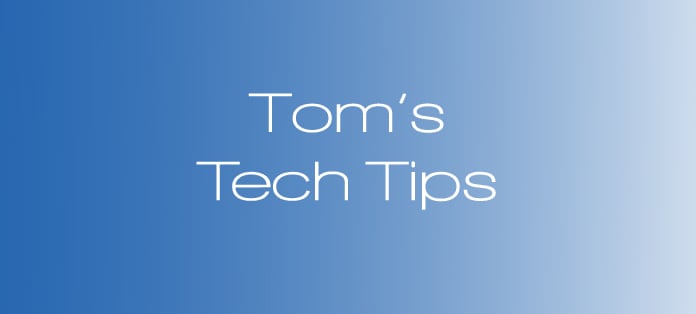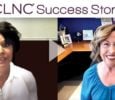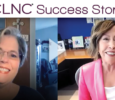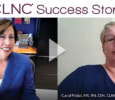I spend a lot of time in airports. Sometimes it seems that the actual flying is the shortest part of the trip. The greater amount of time is spent getting to the airport, passing through the body-cavity checks and double-TSA pat-downs (I’m a sucker for the pat-downs). Then there’s looking for the closest Starbucks®, food (preferably Popeye’s Chicken) and then restrooms (in that order). Eventually I find myself sitting in the airline’s lounge chowing down on free drinks and peanuts or sitting on the floor outside the gate with the rest of the steerage passengers. I boot up my laptop and log onto the closest free Wi-Fi signal I can find. Here’s a savvy geek-traveler trip – look for the largest airline club. They often have free Wi-Fi for their members and you can soak up some of the over-flow/leakage just by sitting outside their lounge with your wireless card switched on and sponging off their service.
That’s what I found myself doing recently, and while sitting there I started chatting with the fellow traveler next to me about the security of free Wi-Fi connections. Like many other travelers and probably many Certified Legal Nurse Consultants, my new BGB (best geekster buddy) didn’t know that the wireless connections offered in most airports, hotel lobbies, coffee shops and fast food restaurants are unencrypted and thus are not secure. Even if those connections require a log-on password (like many hotels that offer free wireless), once someone has that password, they’ve got unencumbered access to that same network and theoretically to your data traffic. The pay-for-play connections which require a credit card number to access the network often only encrypt the payment segment of the connection, so the balance of your surf-time won’t be encrypted or safe.
What this means to Certified Legal Nurse Consultants is that any Internet miscreant with a little bit of tech talent can actually see what legal nurse consulting-related subjects you’re surfing, read your legal nurse consulting business’s email or even steal the passwords to any accounts you log into while on the service. Horrified? You should be. Does it happen often? Nobody can tell for sure, but like I teach about defensive contracting tactics in my class on How to Formulate and Negotiate Contracts in the CLNC® Certification Program, if it happens to you once, it’s one time too many.
So what can you do? Here are four simple solutions. First, don’t use free or unsecured wireless connections; instead, you can purchase a wireless card from AT&T, Verizon or Clear. You could also stay in a hard-wired world but that kind of defeats the purpose of mobile computing on a laptop. Second, if you’re a CLNC® consultant who works with a corporation, insurance company or law firm with access to a virtual private network (VPN), you can just connect to that VPN and use its secure tunnel for your Internet necessities. That way all traffic back and forth between your computer and the firm’s server is encrypted. But there are two problems with that: first, surfing the Internet is against our company policies and probably that of just about every other company, so I guess that’s out. I can use our VPN to check my LegalNurse.com email, post blogs, access our network, etc. but it’s strictly for business use and has software which limits where you can go on the web (which can put a cramp in my holiday shopping and surfing). The second problem is that while some VPNs encrypt all traffic, other VPNs do not, which means some of your traffic will still be exposed. Your firm’s geeks will be able to tell you which type of VPN they employ — and what policies control how you use it.
Third, my CLNC® amigos, you can utilize a private VPN service such as Hotspot Shield from AnchorFree which is a free service. And it will protect your surfing to a limited extent. You simply download and install their free software which creates a VPN between your laptop and AnchorFree’s servers. I’ve tried their service and it works pretty well. The slowdown is minimal (or my connection was slow to begin with) but the added security is worthwhile. They’ll serve you some ads in the tab you have open when you connect to their server, but I found you can open other tabs for your browsing and they’ll stay ad free!
Finally, the fourth and easiest if not simplest solution is to just watch what you do while you’re on those unsecured networks. If you absolutely must have email, get yourself a Gmail® account which stays logged into an encrypted connection until you log out. Otherwise don’t do any online banking, do any shopping, use your PayPal® account or even (the horror, the horror) check your Facebook® page. I know I’ve just taken away all the things you like to do for fun on the web – but wouldn’t you rather be a safe Certified Legal Nurse Consultant than a fun one?
Oh, and there’s something I forgot to tell you. If you’re utilizing that same free wireless service on your iPhone® or Android® phone to save money on your data transfer plan, guess what? That’s right — you can suffer the same issues. More and more people are using mobile banking applications on their phones and doing so in public places. That’s why I recommend switching off the Wi-Fi service on your phone and staying with your provider’s data service. You could, of course, use a VPN on your phone too (Hotspot Shield apparently works on iPhones, woo-hoo!). Check with your phone provider or buy a Dummies® book about your phone to learn how to set up a VPN on your smart phone.
 Keep on techin’ – even more safely than usual,
Keep on techin’ – even more safely than usual,
Tom








